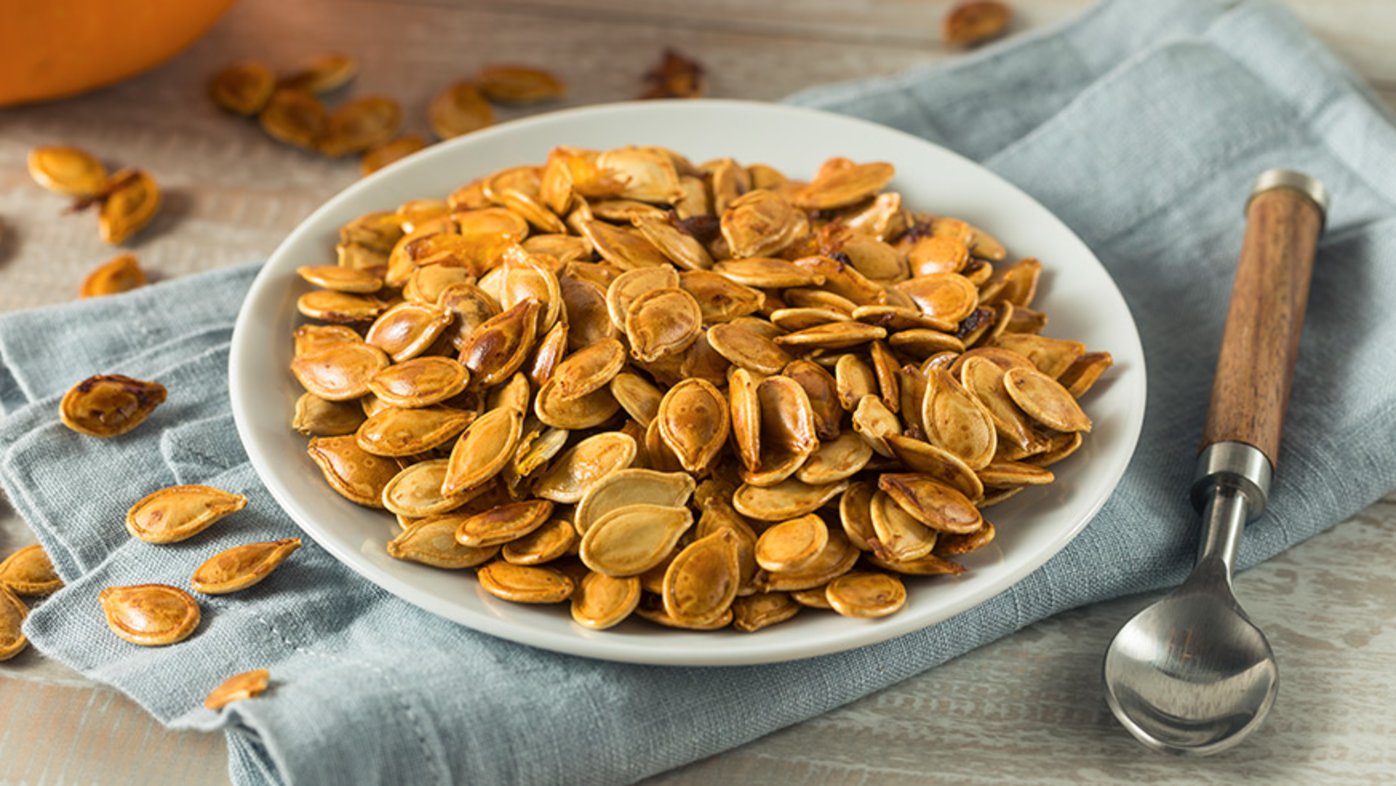
Health benefits of pumpkin seeds
Pumpkin seeds are loaded with the nutrients our bodies need.
We know that inflammation is an indication the body is reacting to some type of outside agent, whether it’s pollution, diet or an injury. However, while it’s not often a welcome condition, inflammation also lets us know that our immune system is doing its job.
“Inflammation is part of your body’s natural defense system,” says Dr. Mona Mofid, a board-certified dermatologist with Sharp Community Medical Group. “When it is functioning properly, it is geared to summon the activation of immune cells to attack unwanted germs, such as bacterial and viral infections.”
An inflammatory response also occurs when tissues are injured by trauma, toxins or heat, among other causes. The damaged cells release chemicals that cause blood vessels to leak fluid into the tissues, which causes the inflammation. This helps isolate the injuring substance from further contact with body tissues.
When inflammation leads to illness
Although designed to help us during an infection or injury, Dr. Mofid reports that too much inflammation can actually cause problems in various organs. For example, excessive inflammation in the joints can lead to arthritis, and too much in the colon can lead to colitis. If an immune response is extremely abnormal, immune cells can attack the body by mistake.
“When the immune system goes haywire, the body can’t tell the difference between your own cells and foreign cells,” Dr. Mofid says. “It mistakenly attacks itself, hence the term ‘autoimmune.’”
More than 80 autoimmune diseases have been identified; common ones are Type 1 diabetes, lupus, psoriasis, multiple sclerosis and rheumatoid arthritis. Most autoimmune disorders likely result from a combination of genetic and environmental factors, and many have no cure, requiring lifelong treatment.
How diet affects inflammation
However, according to Dr. Mofid, there are natural anti-inflammatories we can consume. These include foods that can help lower the odds of having “bad” inflammation, especially for people who already have an inflammation-causing condition.
“While medication and other treatments are important, many experts promote an anti-inflammatory diet,” Dr. Mofid says. “If you have a condition such as rheumatoid arthritis or psoriasis, an anti-inflammatory diet might lessen the number of flare-ups or the severity of episodes that you have.”
What’s more, anti-inflammatory diets are widely regarded as generally healthy, even if it doesn't help with a specific condition. Consuming anti-inflammatory foods can also help lower the chances of having other chronic health conditions, such as heart disease.
What to eat — and not eat
“The basic premise of a healthy diet is incorporating a lot of fruits and veggies — the more colors the better — along with lean protein and whole grains,” Dr. Mofid says. “Going a step further, an anti-inflammatory diet involves avoiding certain foods that increase inflammation, such as gluten, dairy, processed foods, refined sugars and fatty cuts of red meat.”
The Arthritis Foundation recommends following a diet plan that mirrors the Mediterranean diet, rich in whole foods and low in processed foods and saturated fats, to help decrease inflammation. The Mediterranean diet includes these staples:
Fish — at least 3 to 4 ounces, twice a week
Nuts and seeds — 1.5 ounces (about a handful) daily
Fruits and vegetables — 9 or more servings daily
Olive oil — 2 to 3 tablespoons daily
Beans — at least 1 cup, twice a week
Whole grains — 6 ounces daily
However, for some people who have inflammatory diseases, there are a few foods that are often considered healthy but can worsen inflammation, such as certain nuts, whole grains that contain gluten, and vegetables in the nightshade family — white potatoes, eggplant, bell peppers and tomatoes. Dr. Mofid suggests eliminating these from your diet to see if inflammation decreases, and then slowly adding them back in to see how your body responds.
“Talk with your doctor or a nutritionist about your concerns about inflammation and how changes to your diet might help,” Dr. Mofid says. “Additionally, several studies have shown that maintaining a healthy weight, regular stress reduction and meditation can decrease the body’s attack on the immune system, so consider what other lifestyle changes you might make to help reduce inflammation and feel better overall.”
Our weekly email brings you the latest health tips, recipes and stories.